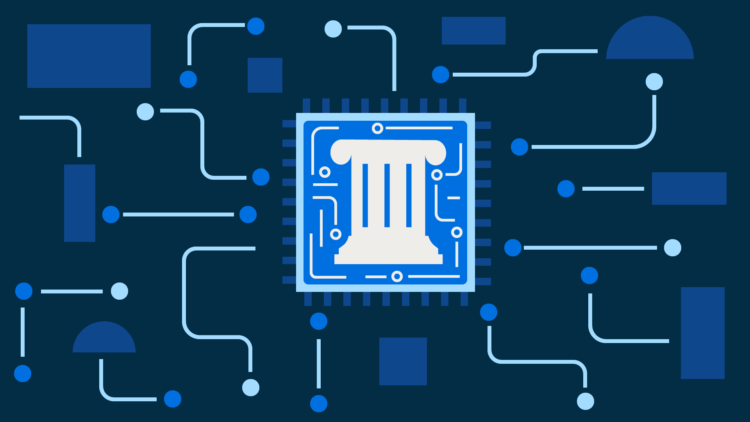Today’s modern law firms are building better client-centered practices with new legal technologies that enable efficient, seamless, and scalable client services. Legal networks are widening as a result of these changes, and the industry is better connected than it’s ever been before.
Much of that is facilitated through technology infrastructure and an unprecedented adoption of it. But there’s a shift in mindset, too. Today’s legal professionals are empowered to become more client-centered and to deliver transformative experiences.
Instead of waiting on clients to ask for new methods and service models, growing firms are addressing their needs before they arise—differentiating themselves from bulkier, and often antiquated, practices while reaching into new territories and opportunities to connect to more clients. The 2021 Legal Trends Report captures just how sturdy the adoption of new technologies is throughout the sector—at least 95% of legal professionals plan to continue to use these technologies beyond the pandemic. Together, we’ve experienced a generational shift, and there’s no turning back.
We’re more connected in a broader sense, too. Our technologies, our relationships, and physical locations are redefined by the changes that surround us. We look to future concepts like digital currencies and the metaverse as a very possible future for us, and are thinking wider about how we’ll apply new technologies to make our physical lives better and more intentionally connected.
This is precisely the environment to introduce Clio’s legal operating system, the first of its kind, and the most connected platform in legal.
In the traditional context of computing or technology, an operating system manages a computer’s processes, connecting hardware and software, to utilize its full capabilities amongst all of its connected programs. Today, across multiple devices, softwares, and integrations, Clio is at the epicenter of technologies for legal professionals, facilitating a customizable, seamless experience at every point of the legal process.
Clio is expanding legal networks through our API and app-partner ecosystem

Clio’s cloud-based legal technology is designed to securely store and manage data while making it accessible from any location. Our underlying API facilitates a connection point for technologies to integrate with Clio, opening the opportunity for legal professionals to build their tech stack exactly as they need it. Customers have access to 200+ applications in Clio’s growing app ecosystem, the largest user base of pioneering legal professionals in the world. This connective capability is core to how Clio was designed, and is unique in the market of legal technology.
In the spirit of innovation, we’re continuing to invest in that ecosystem. We recently formalized this effort with the launch of Clio Ventures, our early-stage legaltech investment vehicle making direct equity investments into promising early stage companies. Our first investment in service-processing disruptor Proof exemplifies how technology can vastly improve legal workflows—something we’re passionate about unlocking for our customers. We’ll continue to discover and invest in this type of innovation to support industry transformation happening within and beyond the Clio platform.
Through our API, app ecosystem, and future investments, Clio’s infrastructure bridges the technologies most important to the needs of the modern legal professional, seamlessly connecting a broad network of solutions as needed, from anywhere.
Clio has evolved into a vertically integrated company
It was just a year ago that Clio introduced its mission to transform the legal experience for all. It’s an audacious goal, reaching beyond the margins of our company into the wider legal community. Our legal operating system connects the network of technologies legal professionals need to accomplish transformative work in the sector. But while we’re investing in broadening the networks around us, we’re also looking inward—innovating our core products to meet the needs of today’s modern legal professionals. Clio has vertically integrated for greater connectivity between the needs of our customers and the rising expectations of their clients.
Our vertical integration is marked by two major shifts this past year: expanding from practice management to the practice of law with the acquisitions of CalendarRules and Lawyaw, while launching our first fintech product, Clio Payments. Through our acquisitions, customers can better automate court calendars and court forms to streamline time-consuming and error-prone areas of legal service. The online payment capabilities in Clio Manage help support another critical point of the client journey, billing and payments, helping reduce friction at this milestone while ensuring legal professionals get paid for their services.
With each expansion, we have moved further along our product roadmap, connecting the core technologies legal professionals are looking for, to improve the speed and accuracy of their services. We’re building the technical foundations to help lawyers connect to more clients in a vastly-underserved legal market.
You may like these posts
Clio is getting intentional about digital and in-person interactions

Like most, we crave person-to-person interaction after years without enough of it. But how we communicate with our friends, colleagues, or with our clients, has fundamentally changed. Today, these interactions are largely supported by technological infrastructures, and as a company, we’re growing the ways legal professionals can connect with their colleagues and clients through our platform—and by extension, all of the channels that connect into it. Seamless digital relationships are an expectation of today’s consumer, and we believe excelling in this capacity will lead to better in-person exchanges when they arise.
To connect clients to their legal matters, we’ve launched Clio for Clients, a portal designed for legal clients to securely communicate and share information with their lawyer. This portal gives clients unlimited access to the status of their matters, and importantly, connects them on a self-serve basis, so they always feel connected to their case in real-time, without the need for their lawyer to provide ongoing updates.
Text notifications are another important feature we’ve developed to better connect lawyers and their clients. Providing client-centric communications through text, and automating the process, can improve the attorney-client connectedness while easing the burden on legal professionals.
We’re also continuing to build opportunities for collaboration and growth between legal professionals with The Law Community. We launched this platform just one year ago to foster conversation between Clio customers, industry leaders, and legal professionals. Since then, we’ve grown to over 2,000 members who support each other, discuss important legal topics, learn how to better use Clio and other legal technologies, and get access to support and resources.
Clio is closing access to justice gaps
When the pandemic forced this industry into a great wave of technical adoption, there was no greater need to connect legal professionals to their colleagues, files, and clients remotely—with ease and immediacy. Clio customers can access vital information through the cloud, and in addition to the many integrated tools and technologies, have had access to everything needed to transition their businesses confidently into the realities of offering remote legal services.
And so attorneys are able to offer better legal services to more clients without the need to physically meet, reaching beyond travel inconveniences and restrictions. This is a game changer for clients who seek fast, efficient remote legal services, but more importantly serves a greater span of clients who live in areas with sparse legal representation or services, or “legal deserts.”
Attorneys have the opportunity to increase access to justice by expanding remote legal services to underserved regions. Where access to technology is limited, some of our customers have reinvented the “place” for legal offices, showing up on-site at the scene of disaster, or traveling to communities without access to technology or legal services. We are proud to be a small part of this effort made by members of the legal community who continue to go above and beyond in ensuring access to justice for those who need it.
The legal operating system is just the beginning
New legaltech infrastructure has made remote connectivity possible, and with that, comes an opportunity to expand legal networks accordingly. In bringing together all of the ways Clio’s legal operating system improves our ability to connect people, places, and technologies, legal professionals can engage the tools that support them in their goals for effectiveness and growth. Clio’s legal operating system is designed to create channels for deeper, and more meaningful connections between the judicial system, legal communities, innovators, peers, and clients.
Today’s legaltech infrastructure is supporting tomorrow’s innovations. The legal operating system provides a foundation to what we’ll build together in the future of this sector. At Clio, we’re all incredibly excited for this moment.
We published this blog post in March 2022. Last updated: .
Categorized in: Technology








